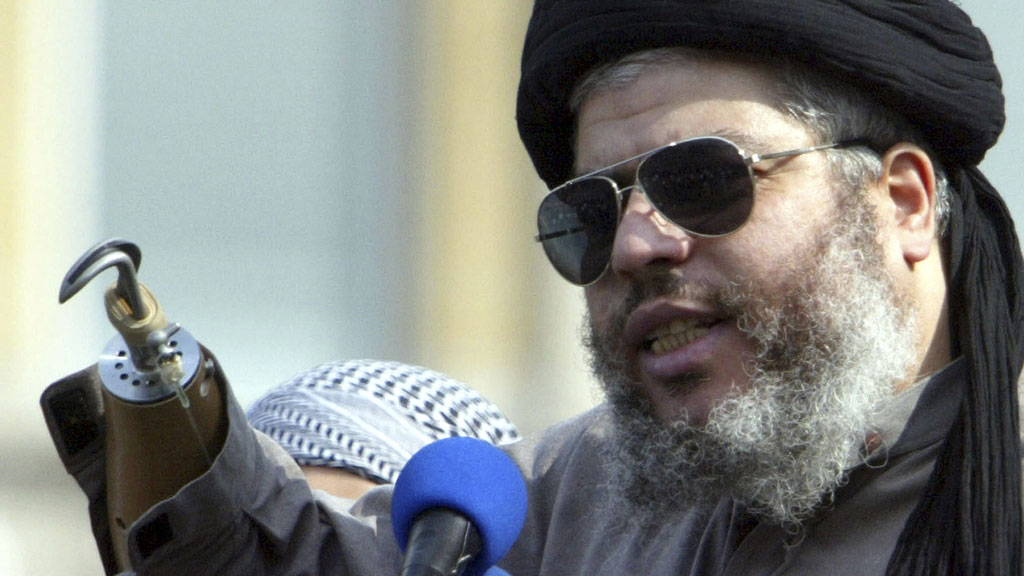Abu Hamza blames ‘harsh’ UK environment for health woes
Lawyers for the radical cleric argue “unrelentingly harsh” UK conditions have caused health problems that should be addressed before extradition to the US on terror-related charges.

Lawyers for the radical cleric say their client’s health has been deteriorating during the eight years he has lived and been imprisoned in the UK, using every legal opportunity available to delay extradition to the US.
The preacher is accused of running a terrorist training camp in America and has already spent seven years in prison in the UK, where his lawyers say he has suffered health problems, “perhaps attributable to sleep deprivation and the continued confinement of the appellant in an unrelentingly harsh environment”.
His barrister, Alun Jones, lodged papers before the London court saying Abu Hamza needed an MRI – a scan often used to diagnose health conditions affecting organs, tissue and bone – as a result. The lawyer is due to make further submissions to the court over the next several days.
Poor health
The former Finsbury Park preacher and his family have racked up legal and social benefit bills estimated at £2.7m in the eight years he has been in Britain. He has nine children by two wives.
In 2010, the family lived in a £700,000 five-bedroom council property in an exclusive west London street next door to a former cabinet minister, John Hutton.
Abu Hamza and several other terror suspects are trying to get a high court injunction to stop their extradition to the US on the grounds they would suffer.
US charges
Europe’s human rights judges have already rejected Abu Hamza’s bid for an appeal but the men are expected to claim new evidence has come to light since them.
Computer expert Ahmad has been held in a UK prison without trial for eight years after being accused of raising funds for terrorism.
Between 1999 and 2006, the men were indicted on various terrorism charges in America.
If extradited to the US, Hamza faces charges including 11 counts of criminal conduct related to the taking of 16 hostages in Yemen in 1998, advocating violent jihad in Afghanistan in 2001, and conspiring to establish a jihad training camp in Bly, Oregon, between June 2000 and December 2001.
Ahmad and Ahsan are accused of offences including providing support to terrorists and conspiracy to kill, kidnap, maim or injure persons or damage property in a foreign country.
Bary and Al-Fawwaz were indicted – with Osama bin Laden and 20 others – for their alleged involvement in, or support for, the bombing of US embassies in Nairobi and Dar es Salaam in 1998. Al-Fawwaz faces more than 269 counts of murder.
-
Latest news
-
Why is the UK not exploiting technology for net zero trains?6m

-
Hamas launches rockets at Tel Aviv after 81 people killed in Gaza3m

-
What are the politics behind Rishi Sunak’s national service plan?7m

-
Rishi Sunak pledges to bring back national service4m

-
Chelsea Flower Show: A sanctuary for survivors of torture3m

-




